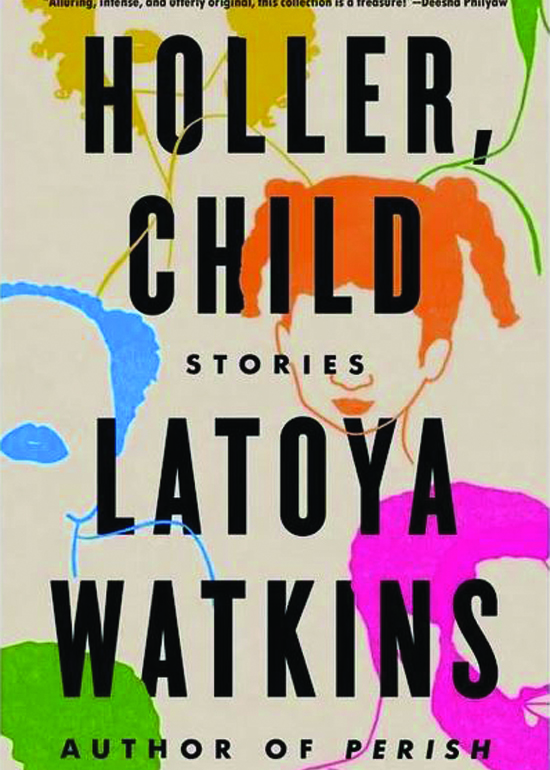Generational Trauma in Texas

Holler, Child
by Latoya Watkins
New York: Penguin Random House, 2023.
218 pp. $28.00 Hardcover
Reviewed by
Shravani Karna
With Holler, Child, Latoya Watkins has unveiled a new collection of stories that continues to exemplify her distinct voice while delving into the unspoken complexities of society. Like her bestselling novel Perish, these stories offer intimate glimpses into African American communities in West Texas, a place Watkins shares with her protagonists.
The book opens with “The Mother,” which follows Mrs. Hawkins, the mother of a self-proclaimed messiah. Upon his death orchestrated by the government, she is ambushed by journalists, all wanting to know the truth about her son. She questions her decision to hide her past—she was a prostitute and doesn't know who his father is—from her son, raising him to believe that he was, like Jesus, immaculately conceived and hence was the son of God. The inspiration for the story, according to Watkins, was the fate of David Koresh and the Branch Davidian cult.
In the namesake story, “Holler, Child,” another mother reminisces about her rape as a teenager as she faces her son who is accused of the same crime. She grapples with herself on how to respond to the situation, part of her mind horrified by the act wants him to be punished while another remembers him as an innocent child who could never be this cruel.
Most of the book deals with the voices of mothers and daughters; few stories show the male perspective. “Cutting Horse” is one of them. Ridley Johson, a cowboy from Lubbock who meets Nicole, a Texas Tech student who is way out of his league. He leaves his rugged lifestyle and settles in Dallas in a split-level neighborhood full of white people. He is hugely influenced by the Black Lives Movement, which causes friction between Nicole and him. One day a horse ends up in his backyard, which Ridley takes as a symbol of his and horses' confinement from their natural space. Fearing death from the police for mistaken theft, he takes off with the horse in a dramatic scene. “I’m on her back, looking to her, and she taking the street to the sky with a smile on her face, like this always was our plan.”
Through these tight-knit stories, Watkins tackles generational trauma, sacrifice, and courage. Each voice brings something special. These interpersonal dynamics between men and women have a ripple effect, impacting subsequent generations. For instance, there's the daughter who courageously challenges her mother's emotional detachment, the mother who chooses to shower affection on her children as an act of defiance against her husband, and the young woman who gains fresh insights into her parents when her baby's father refuses to offer assistance.
Watkins approaches topics such as the death of a child, partner, and pets, by using the white space. There are words left unsaid. Yet we can feel in our hearts the weight of these stories as the characters are well written into very life-like situations. Holler, Child is an excellent set of short stories no less powerful than her debut novel.
Shravani Karna is an MA literature candidate at Texas State University. She obtained both her undergraduate and graduate degrees in India. While her lifelong engagement in teaching has taken various forms, she professionally served as an ad-hoc lecturer at C.V. Raman University in India.
